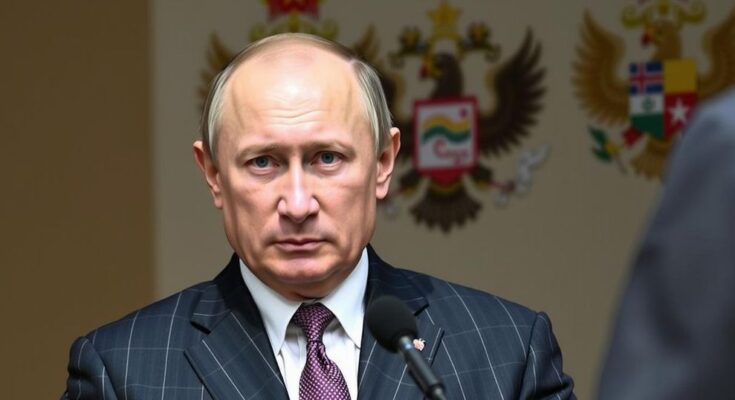Vladimir Putin faces heightened challenges in Africa as Sudan and Libya resist Russian military initiatives. Sudan has rejected a proposed naval base from Moscow, while Libyan Prime Minister Dbeibeh has opposed foreign military presence without governmental approval. These developments threaten Russia’s strategic foothold on the continent, especially following losses in Syria, affecting its ability to maintain regional influence amidst ongoing global conflicts.
Recent developments indicate a significant setback for Russian influence in Africa, particularly following the retreat from Syria stability. Sudan has officially denied Russia’s request to establish a naval base in Port Sudan, after reports emerged that Moscow had offered advanced S-400 anti-aircraft systems in exchange for cooperation. Concerns regarding potential Western repercussions, however, led to this rejection. Additionally, Libyan Prime Minister Abdul Hamid Dbeibeh has expressed strong opposition to any increase in Russian military presence without official agreements, stating that foreign forces must operate under the consent of the Libyan government, highlighting a growing sentiment against unwelcome foreign military intervention.
These events cast doubt on Russia’s aspirations to secure stronger military footholds in Africa as it grapples with the weakening position that has arisen following the instability in Syria. Russia’s plans to build a naval base in Sudan face increased hurdles due to ongoing internal conflicts in the nation, compounded by the civil unrest which has impaired potential agreements. Should Russia’s military assets be shifted from Syria to Libya, as speculated, this development will pose challenges to both Libyan sovereignty and regional stability.
Officials suggest that the vacuum left by the Assad regime might compel Russia to draw resources from its Syrian bases, introducing air-defense capabilities into Libya, where Russian-backed factions are active. Meanwhile, the Kremlin’s attempts to communicate with Syrian factions may prove crucial if they wish to sustain any presence in the region, as failure to adeptly negotiate while under duress from Western powers could result in diminished African influence, especially considering the Ukraine conflict’s existing demand for Russian resources.
Russian military ambitions in Africa, particularly in Sudan and Libya, have faced increasing resistance. The recent rejection by Sudan of Moscow’s request for a naval base and Libya’s strong stance against Russian military presence indicate a potential reversal in Russia’s established influence in the region. Since Russia’s engagement in Syria, there has been an ongoing shift in its strategic focus, attempting to bolster its posited authoritarian partnerships across Africa. However, the geopolitical landscape is shifting, raising questions regarding Russian operations in the region and its continuing leverage after the decline of Bashar al-Assad’s regime.
The current political climate in Africa, characterized by Sudan and Libya’s rejection of Russian military presence, signifies a critical juncture for Russia’s effort to maintain a foothold on the continent. As Moscow reassesses its strategy following the Syrian retreat, the dual opposition from these nations underscores the complexities Russia faces in exerting influence, compounded by its entanglement in other global conflicts. It is imperative for Russia to navigate carefully to preserve any remaining power dynamics while ensuring that its actions align with the geopolitical sensitivities of African nations.
Original Source: www.newsweek.com




